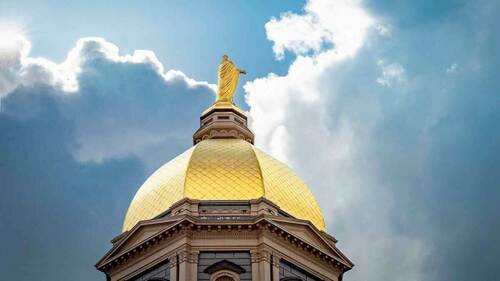
Embracing the demand for professional data scientists equipped with quantitative skills as well as ethical training, the University of Notre Dame and the College of the Holy Cross in Worcester, Massachusetts — two of the leading Catholic institutions in the nation — have launched an innovative Bachelor of Arts/Master of Science degree collaboration.
This program creates an integrated and cost-effective pathway for Holy Cross undergraduates to begin Notre Dame’s online M.S. in data science during their senior year. Notre Dame’s online graduate program, which has been supported by AT&T, is industry-aligned and focused on developing “three-dimensional” data scientists who possess the rich quantitative, ethical and communication skills necessary for professional success in today’s data-driven age. After graduation from Holy Cross, participating students continue in Notre Dame’s online M.S., receiving their graduate degree the following spring. Inspired by a shared commitment to liberal education in the Catholic intellectual tradition, this collaboration aims to create the next generation of data scientists. Research and teaching partnerships in data science and analytics will expand the collaboration.
“Integrating online professional-graduate education with an undergraduate liberal arts experience is a new frontier,” said Elliott Visconsi, associate provost and chief academic digital officer at Notre Dame. “Notre Dame is thrilled to partner with the College of the Holy Cross to explore innovative educational models, deepen our shared commitments and welcome superbly trained Holy Cross students into the Notre Dame family.”
Margaret Freije, provost and dean of the faculty at College of the Holy Cross, said, “This partnership helps Holy Cross to expand our curriculum in a high-demand field and connect our liberal arts model with professional graduate training, all while maintaining the deeply residential quality of the undergraduate experience. We are delighted to collaborate with Notre Dame to support our students in achieving their post-graduate goals and to cultivate ‘three-dimensional’ data scientists.”